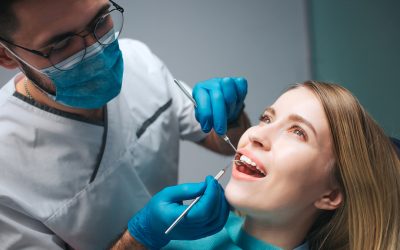Visits to the dentist are often a mix of trepidation and relief. However, as a DeForest resident, understanding when to make that crucial appointment with your family dentist should not be a guessing game. Regular dental care is vital for maintaining oral health and knowing the signs that suggest it’s time to head to the dental clinic is essential for nipping potential problems in the bud.
This guide will unpack the indicators warrant visiting a family dentist near DeForest, WI.
Toothache or Sensitivity
Is a dull or sharp pain making it hard to chew or concentrate? Toothaches can range from mild discomfort to excruciating pain and should never be ignored. Similarly, severe sensitivity to hot or cold can indicate an underlying issue, such as a cavity, crack, or exposed root. These symptoms warrant a visit to your family dentist near DeForest, WI, for immediate evaluation.
Bleeding Gums
Gums that bleed during brushing or flossing are generally a sign of inflammation, which may indicate periodontal (gum) disease. This condition requires timely intervention to prevent further deterioration, which can lead to tooth loss and other health complications.
Persistent Bad Breath
While bad breath after a garlicky meal is typical, persistent halitosis that doesn’t improve with proper oral hygiene could indicate something more serious, such as a dry mouth, periodontal disease, or even certain medical conditions. Your family dentist, such as Parkview Dental Associates SC, can help identify the root cause and formulate a treatment plan.
Jaw Pain
Persistent jaw pain, which may be traced to the temporomandibular joint (TMJ), can be related to various factors, including clenching, grinding, arthritis, or injury. Since jaw pain can significantly impact daily life, a family dentist can offer solutions to alleviate discomfort and address any underlying issues.
Changes in Your Mouth
Any changes in your mouth, including lumps or bumps, sores that don’t heal, or changes in the color or texture of your oral tissues, should be checked by a professional. While many of these changes are benign, some could be signs of oral cancer or other severe conditions.


